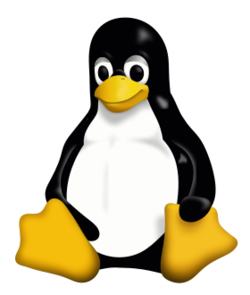Linux
(Operating system) | |
|---|---|
 | |
| Start | 1991-09-17 |
| The world's most popular open source operating system. "More secure than its competitors" | |
Linux is the world's most popular open source operating system. It is widely used where reliability or flexibility is an advantage, such as for server farms, custom hardware or embedded systems. It is not invulnerable, but "generally speaking, Linux is more secure than its competitors."[1]
Contents
Origins
The project arose from the fusion of Richard Stallman's work creating the GNU Project and Linus Torvalds' work on an open source kernel.[2]
Distros
Many different distributions have evolved, which vary in target audience, capabilities and business model. Many are freely available.[3]
Uptake
Corporations were initially wary of the free status of Linux, but its perceived reliability countered that. In 2020 the South Korean government announced plans to switch all 3.3 million of its computers to Linux.[4]
Security
Linux is generally agreed to be more secure than Windows[citation needed], although zero day exploits do exist.[5]
Threats to integrity
| Goodbye GNU/Linux, Hello Rust/Linux (18:43) ~ The Lunduke Journal, 2025-03-17. |
| Ubuntu Will Replace GNU Core Utilities With Rust (10:57) ~ Mental Outlaw, 2025-03-17. |
The technocracy (Google, Microsoft, etc.) and their woke identity politics are infiltrating and subverting open-source software and Git platforms, including the formerly solid GNU-Linux. Ubuntu announced they were going to switch from GNU to Rust, a still-evolving language. They are also switching from the compulsory open-source GNU license to the MIT license allowing corporations to exploit free development to build stronger proprietary software over the original that will fall out of favour. Similarly, the Android operating system was initially completely open-source but the superior features of Google's Android OS are preferred by the masses who don't know about and/or mind the technocratic surveillance, manipulation, and control.
Microsoft
In the 2000's Microsoft was in opposition to Linux, running add campaigns against it.[6][7][8]
Developing Vaccine Passport
In December 2020, the Linux Foundation has partnered with IBM, the COVID-19 Credentials Initiative and the World Economic Forum's CommonPass, a digital “health passport,” in order to develop vaccine credential apps that will be applicable globally. If the initiative is successful, people will be required to pull up a vaccine certificate on their phone showing when and where they were vaccinated, along with which type of vaccine, in order to get on a plane or attend an indoor event, such as a concert, for starters.[9][10]
An example
| Page name | Description |
|---|---|
| Debian | Popular and influential Linux version whose founder died suddenly |
References
- ↑ https://www.zdnet.com/article/enough-with-the-linux-security-fud/
- ↑ http://www.unwelcomeguests.net/060_-_Mutual_Aid:_Principles_and_Practice_(from_Free_Software_to_Social_Centers)
- ↑ http://distrowatch.org
- ↑ https://www.fosslinux.com/29117/south-korea-switching-their-3-3-million-pcs-to-linux.htm
- ↑ https://archive.fo/wAqEa
- ↑ http://archive.today/2020.10.06-174643/https://www.pcwelt.de/news/Microsoft-greift-Linux-an-273131.html
- ↑ http://archive.today/2020.10.06-175728/http://xahlee.info/UnixResource_dir/microsoft_linux_ad.html
- ↑ https://www.linux-community.de/blog/microsoft-und-die-gpl/
- ↑ https://edition.cnn.com/2020/12/27/tech/coronavirus-vaccine-passport-apps/index.html
- ↑ https://childrenshealthdefense.org/defender/global-vaccine-passports-scary-whats-next-2/
